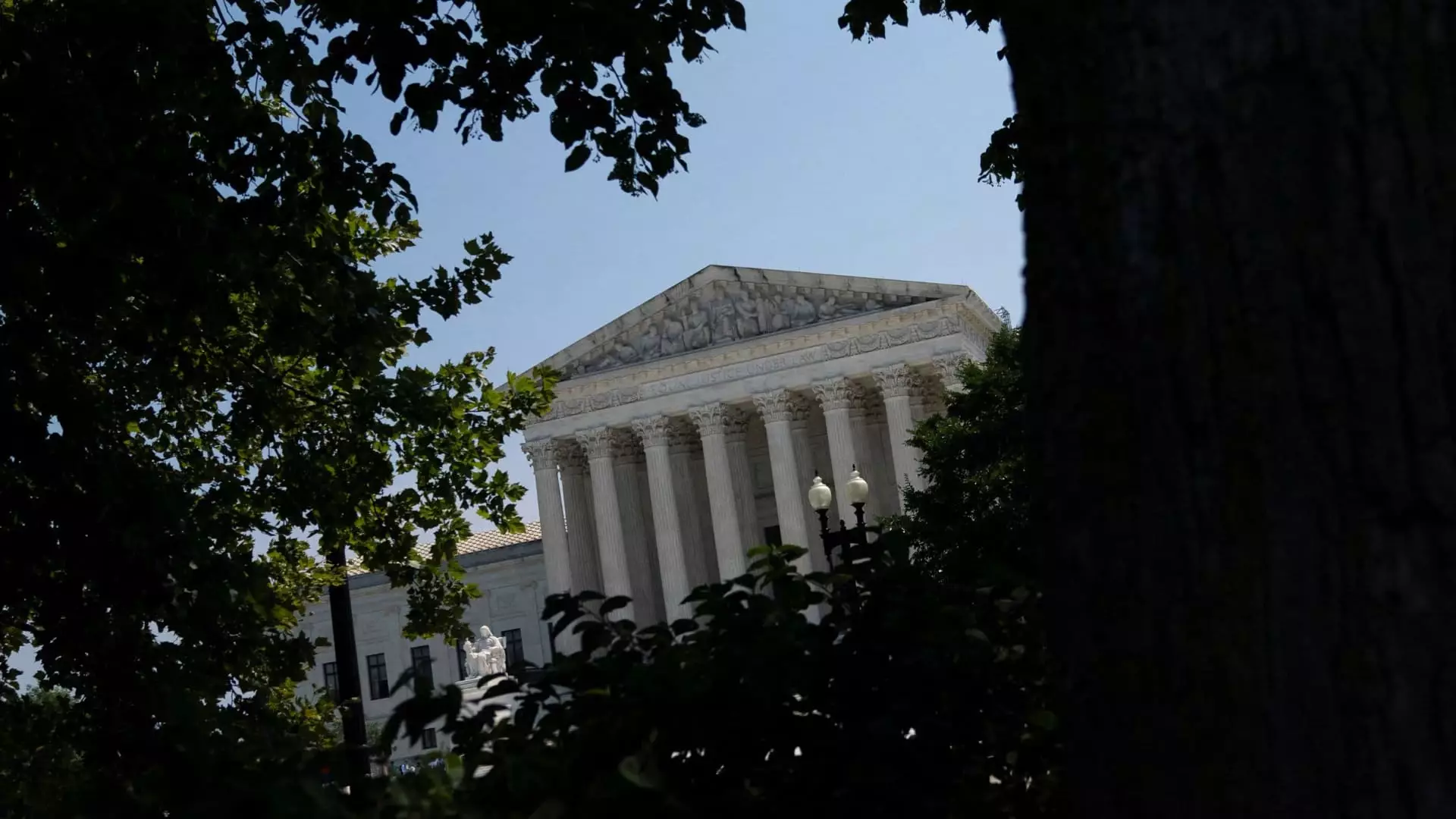In a significant ruling, the Supreme Court has decided to uphold the enforcement of the Corporate Transparency Act (CTA), a federal law aimed at enhancing transparency in corporate ownership in the United States. This law mandates that corporate entities disclose their true beneficial owners to the Treasury Department, playing a crucial role in the fight against money laundering and other financial crimes. The ruling comes as a reversal of a nationwide injunction previously issued by a Texas federal judge, who deemed the law an overreach of Congressional power. This monumental step by the Supreme Court reflects a renewed commitment to financial integrity and the fight against corporate malfeasance.
The path leading to this ruling was not without its obstacles. The CTA faced legal challenges initiated by the National Federation of Independent Business and several small businesses, which claimed that its requirements imposed undue burdens on them. These challenges culminated in a decision by U.S. District Judge Amos Mazzant, who put a hold on the law’s enforcement, arguing that Congress had exceeded its authority under the Constitution. The judge’s assertion that the CTA was a “quasi-Orwellian statute” raised alarms about possible governmental overreach into the operations of small businesses.
However, the implications of Mazzant’s ruling were far-reaching. The injunction, upheld by the 5th U.S. Circuit Court of Appeals, threatened to stall the implementation of a law intended to curb illicit financial activities just as many entities were preparing to comply. The Biden administration’s appeal to the Supreme Court highlighted the urgent need for the law’s enforcement, underscoring that many corporations had already adhered to the reporting requirements, an indication of their commitment to transparency.
Understanding the term “beneficial owner” is essential in the context of this ruling. A beneficial owner refers to an individual who owns or controls a company, either directly or indirectly. The CTA’s reporting requirements compel corporations and limited liability companies to submit information about their beneficial owners to the Financial Crimes Enforcement Network (FinCEN). This collection of data is vital for authorities to monitor financial transactions effectively and to combat illegal activities such as money laundering, tax fraud, and terrorism financing.
The law’s supporters, including the Biden administration, argue that improved transparency will mitigate the risks of corporations being misused as vehicles for crime, particularly as criminals increasingly exploit the ease of establishing entities under state regulations without revealing their intentions. The Solicitor General’s brief emphasized that the government’s ability to prevent and prosecute severe crimes rests significantly on the transparency the CTA brings.
The court’s ruling carries substantial constitutional implications as well. It reinstated Congress’s authority to enact laws that regulate commerce across state lines, reinforcing the principle that regulating economic activities affecting interstate commerce is well within legislative jurisdiction. This aspect of the ruling countered concerns raised by Judge Mazzant regarding states’ rights under the 10th Amendment. The Supreme Court’s decision signals a judicial endorsement of legislative power in areas crucial for national security and economic integrity.
Moreover, the fallout from Mazzant’s injunction could have catalyzed discussions about the limits of Congressional authority, particularly regarding federal intervention in state matters. However, the Supreme Court’s decisive action reestablishes a framework for federal oversight of economic activities critical for safeguarding societal interests.
As companies brace themselves for compliance with the CTA, this landmark ruling serves as a pivotal moment in the fight against financial opacity. It amplifies the call for greater corporate responsibility and transparency, ensuring that the U.S. does not remain a favored location for illicit financial activities. Companies must recognize the importance of these regulations, not just for compliance, but as a necessary step toward fostering trust within the marketplace and among consumers.
The Supreme Court’s decision to uphold the Corporate Transparency Act marks a definitive move towards enhancing the integrity of the financial system in America. It reaffirms the importance of transparency while simultaneously defining the boundaries of Congressional authority. As we move forward, it is imperative that all stakeholders—businesses, regulators, and society at large—embrace this shift towards a more transparent and accountable economic landscape.



Leave a Reply